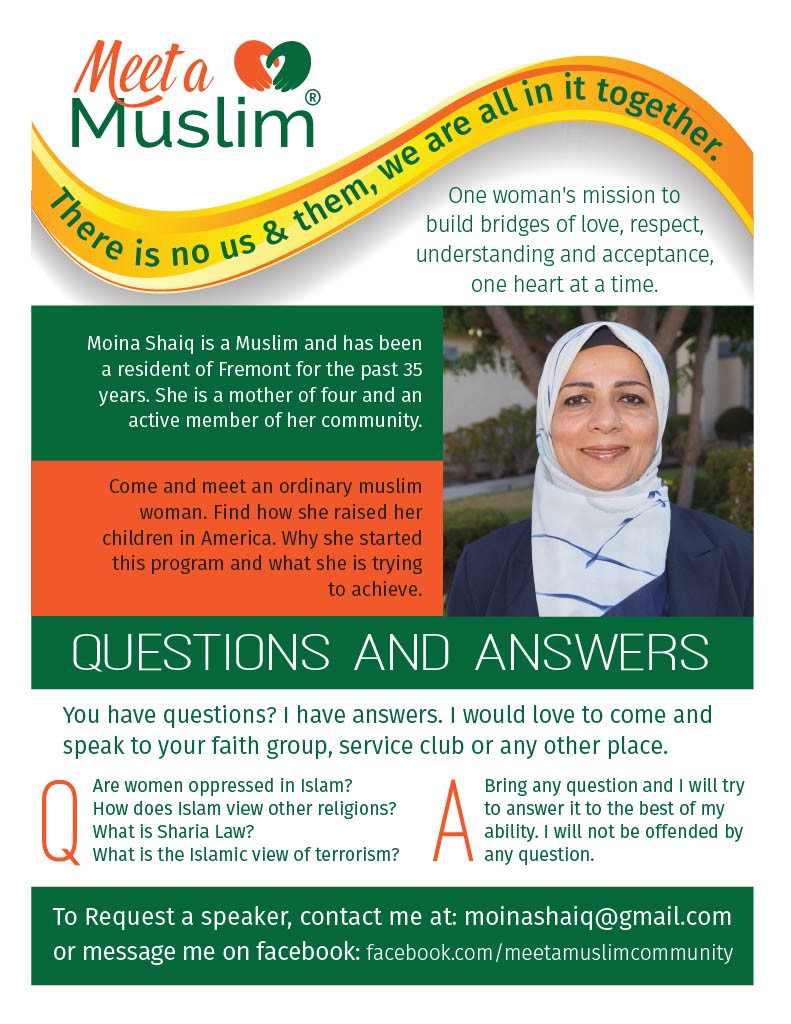We recently connected with Moina Shaiq and have shared our conversation below.
Moina, thanks for joining us, excited to have you contributing your stories and insights. Can you tell us the backstory behind how you came up with the idea?
As a Muslim living in America, I felt that specially after 9/11 there were a lot of misconceptions, misunderstandings and stereotypes against the Muslim community. I wanted to disspel them by sharing my human experience living here, answering their questions and changing one heart at a time.
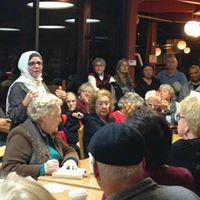
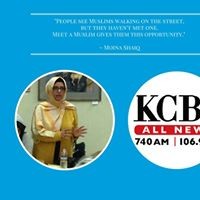
Great, appreciate you sharing that with us. Before we ask you to share more of your insights, can you take a moment to introduce yourself and how you got to where you are today to our readers.
After I got married I came to the US from Pakistan in 1978. Life was good. After my kids were born, I stayed home raising them, doing the usual motherly stuff of joining the PTA, taking my kids to their soccer practices/games, doing girl scout cookie sales etc. The usual stuff that a lot of parents do. I was lviing my life as a mother, wife and a law abiding citizen. 9/11 changed the life of a lot of us and specially for me as a Muslim who had recently started wearing the hijab (headscarf).
People started looking at us with suspicion. I started getting the feeling on not belonging here. At times it was scary. People would say to “go back home”. Where do we go? This is our home. Our kids don’t know anyother place.
Any time an act of terror happened, I would hear “why don’t Muslims condem it”? First, how do we condemn it? The media doesn’t elevate our voices. Every Muslim organization would immediately issue a press release condemning it, but if the media didn’t pick it, our voices could not go out. Secondly, when an act of terror happened, anyone in right conscious would condemn it. It doesn’t has to be said. When we found out that clergy in the Catholic church abused boys, did we expect all Catholics to come out and say it was wrong? It was a given-in that it was wrong.
Anytime, an act of terror happened anywhere in the world the first thing that would come to a Muslims mind would be that Oh God, I hope the perpetrator was not a Muslim. Anytime, it was, we would feel so guilty as if we have done something wrong.
I remember, when a shooting incident happened at a Gay bar in Orlando, Florida, I dropped my daughter off at her soccer practice and as always after dropping her, I would walk around the field, I could not. I came back and sat in my car feeling guilty. After sitting for a while, i thought to myself that I can’t just hide from everyone, I haven’t done anything wrong. I drummed up the courage to come out and walk the field, but I could not make eye contact with anyone.
Since I am involved in my community and do Interfaith work, everytime an act of terror happened, I felt the pressure to do something, a vigil or something to show the community that we condemn and are sadened by it.
In 2012, six Sikh men were killed in Wisconsin, because of mistaken identity. They were perceived as Muslims since they wear a turban. In my town, we have a big Sikh community. We had a big vigil with thousands of people in attendance. When I went there, I felt that why do we come together when something happens, why don’t we do something proactively so things like this won’t happen.
When the shootings happened in San Bernardino, where a Muslim couple killed their colleagues at a Christmas party, I was traveling and didn’t had the pressure to do anything. I again thought, what could I do proactively and that’s when this thought came to mind that I should start holding “meet a Muslim” conversations to share about my faith and to answer questions, any question. I didn’t wanted to start doing at a Mosque or any religious place. I wanted a neutral place. So, I picked a coffee shop, put a small ad in a local newspaper. The day of the event, I didn’t know what to expect, if anyone would really come to listen to me. So I took my laptop, in case no one came to do work for the duration of the time. When I got to the coffee shop about 20 minutes before the event, there were already 10 people waiting. By the time it ended, there were over 100 people there. It was all standing room. I was so overwhelmed and had such a good feeling that my community members are eager to learn and educate themselves about Islam and Muslims.
In the newspaper ad I had said that no question is off the table and I did put some sample questions, like,
Why are women oppressed in Islam
What is the difference between Shia and Sunni
What is Sharia Law
just to give a feel, so people would know what to expect.
I sometimes feel that I am preaching to the choir. But over time I have learned that even the choir, after listening, leaves with a better and deeper understanding of Islam and Muslims and they are better equipped with the tools to answer questions or comments made by family or friends.
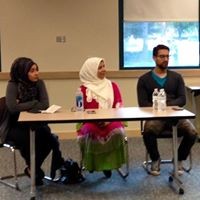
Let’s talk about resilience next – do you have a story you can share with us?
I have several stories that I can share. I will share two here:
1. I was talking to a big group of Seniors at a senior living facility. This was during the time of President Donald Trump and his Muslim ban.
I try not to delve into politics but there are times when it is not avoidable.
During that time, I said that my President does not represent me and is doing things in my name which I don’t condone.
After the event this elderly woman came up to me and said that I can’t say things like this about our President. I asked her why? She said I just can’t. I told her I am as American as she is and have the right to criticize his policies. Upon which she circled my face and said that I can’t because I am wearing this. Meaning my hijab (headscraf). Upon which my jaw just dropped. She was implying that since I am a Muslim, I don’t have the same rights as hers.
2. Once I was holding my event in a small town in Arizona. It was at a mega Church. I had requested security, knowing that Arizona had open carry laws.
Before I started, the security guy came upto me and pointed to an old man walking with a stick and said that that old man is saying that he is Korean war veteran, has killed a lot of people during the war and he will slash my throat if I said anything offensive and that he was armed with a knife. I felt so scared, not knowing when I might cross the line to offend him.
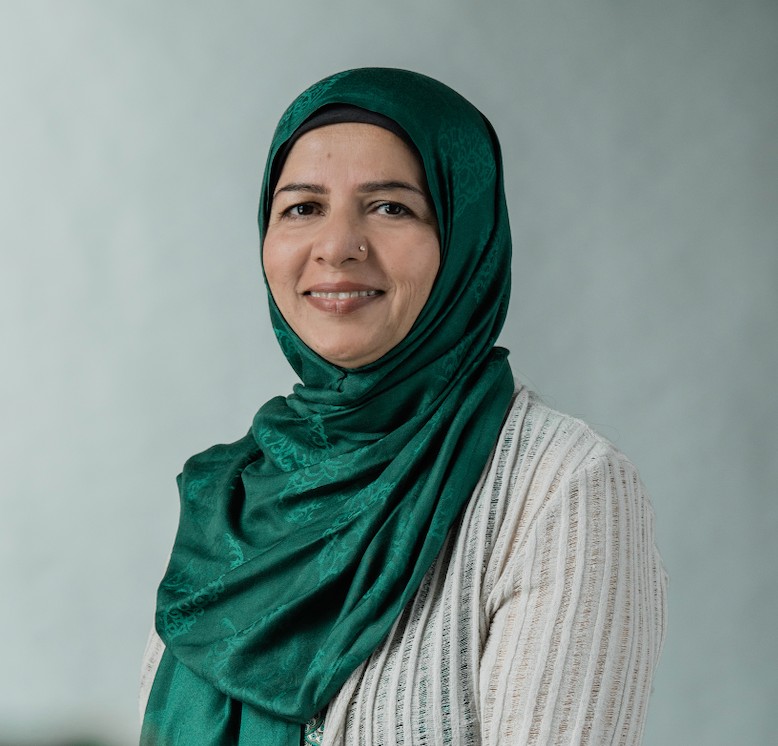
What do you think is the goal or mission that drives your creative journey?
I feel it is my calling to spread the truth about Islam and Muslims by educating people, answering their questions, any question. I think education and awareness is the key. People don’t have time to do research on their own.
I am providing that platform where they could come and learn in an hour some important things about being a Muslim living in the US.
I tell them that I am not the exception, but rather the norm.
Trying to educate and change one heart at a time.
Contact Info:


